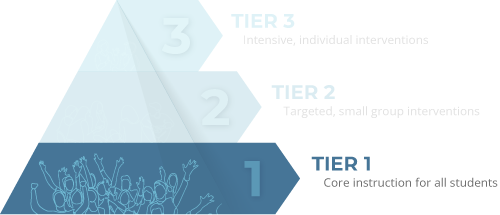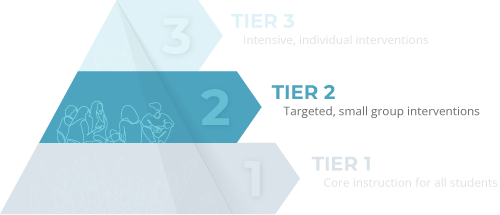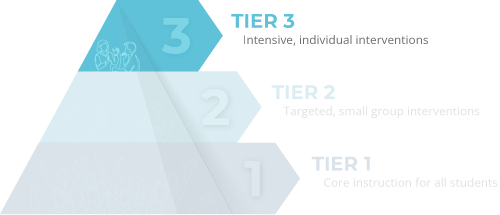Mental Health
Through a collaborative and tiered approach, School Counsellors provide support, advocacy, intervention, and leadership to create an environment where positive mental health and well-being are fostered and promoted for all learners.
Gaining knowledge of inclusive instructional strategies, particularly in personalization of learning, to increase student engagement and success, School Counsellors apply the SAIL model to academics as instructional leaders, recognizing that all adults are positive well-being influencers. Well-being and mental health support flourishing: the ability to cope and manage with a positive outlook in life.
School counsellors promote student success and address academic, personal/social and career development needs by designing, implementing, assessing, and enhancing the School Counsellor Framework.
Mental Health
According to the CMHA (Fast Facts about Mental Health and Mental Illness), “‘Mental health’ is a concept similar to ‘physical health’: it refers to a state of well-being. Mental health includes our emotions, feelings of connection to others, our thoughts and feelings, and being able to manage life’s highs and lows.”
Mental Illness
The CMHA (Mental illnesses) defines mental illnesses as “health problems that affect the way we think about ourselves, relate to others, and interact with the world around us. They affect our thoughts, feelings, and behaviours. Mental illnesses can disrupt a person’s life or create challenges, but with the right supports, a person can get back on a path to recovery and wellness.”
Well-being Influencer
An individual who has a positive impact on learners through activities, discussions, and feedback, contributing to their well-being.
Mental Health Big Ideas
- Mental health impacts the success of each learner.
- Mental health is important at every stage of life, from childhood through adolescence and adulthood.
- Mental health and mental illness supports and interventions require a collaborative approach to promote flourishing.
- Inclusive and equitable mental health practice requires School Counsellors to be culturally competent.

SAIL: RESPONSE TO INTERVENTION (RTI) IMPLEMENTATION
Tier 1
School Counsellors share proactive, universal, classroom/school-wide instructional practices and strategies that promote academic success for all learners.
School Counsellors work collaboratively with all well-being influencers in the school community to support and advocate positive mental health. The school community includes students, families, classroom teachers, Behaviour Intervention Mentors, Educational Assistants, Educational Support Teachers – Resource, Child and Youth teams, administrators, and other stakeholders.
Tier 1 supports may include…
- Collecting data to inform best practices and strategies needed.
- Providing school-wide professional learning for all learners on the best instructional practices and strategies to support mental health.
- School Counsellor playing an active role in promoting school-wide Positive Behaviour Intervention Supports (PBIS).

Tier 2
School Counsellors support and/or provide targeted interventions to promote positive mental health for learners—including students, educators, and support staff—who have demonstrated evidence that additional supports are required beyond Tier 1.
Tier 2 supports may include…
- School-based small group sessions focused on mental health supports.
- Meeting needs collaboratively with outside agencies to support targeted groups.
- Involvement in transition plans (newcomers, grade level or school change, life after school planning, etc.).
- Collaborating with teacher/PLCs, analyzing data, and creation of targeted group work.
- Supporting the development and implementation of PLPs.
- Delivering and creating skill building and/or targeted areas through classroom instruction.
- Collaborating with student and teacher on learner profile to support mental health.

Tier 3
School Counsellors provide individualized interventions to promote success in career connected learning and Hopeful Transitions for learners who have demonstrated evidence that additional supports are required beyond Tier 2.
Tier 3 supports may include…
- Personalized Learning Plan (PLP)
- Referrals
- Individual Behaviour Support Plan (IBSP)
- Following psychoeducational report recommendations
- ESS Connect
- Case conference
- Applied Suicide Intervention Skills Training (ASIST)
- Violence Threat Risk Assessment (VTRA)
- Brief Solution-Focused Counselling
- Assessment of Risk for Suicide

